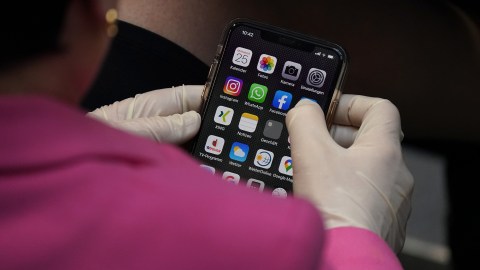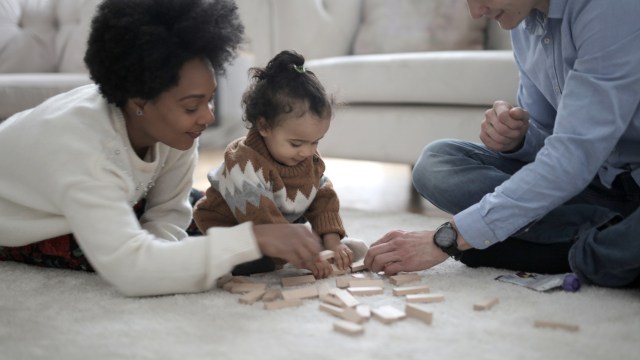England rolls out ‘Test and Trace’ program to combat COVID-19

Sean Gallup / Getty
- The program currently involves 25,000 contract tracers who are capable of tracing 10,000 contacts per day.
- Participation in the program is voluntary, though officials said it may become mandatory if necessary.
- The program will eventually include a smartphone app that records who you’ve come in close proximity to.
England started a test-and-trace program on Thursday that aims to contain the spread of COVID-19 as the nation eases its lockdown.
Under the new program, anyone who tests positive for COVID-19 will be contacted by staff with the National Health Services (NHS), and they’ll be asked to share the contact information of people with whom they’ve recently come in contact. People who’ve crossed paths with someone who tested positive for COVID-19 will be asked to self-isolate for 14 days.
“As we move to the next stage of our fight against coronavirus, we will be able to replace national lockdowns with individual isolation and, if necessary, local action where there are outbreaks,” U.K. Health Secretary Matt Hancock said in a statement. “This new system will help us keep this virus under control while carefully and safely lifting the lockdown nationally.”

TIMOTHY A. CLARY / Getty
Hancock said the program will be voluntary at first, but that the government will make it mandatory if “that’s what it takes.”
“If we don’t collectively make this work, the only way forward is to keep the lockdown,” he said. “The more people who follow the instructions, the safer we can be and the faster we can lift the lockdown.”
The NHS wants people who are experiencing symptoms to visit nhs.uk/conditions/coronavirus-covid-19. The agency also wants to automate its Test and Trace program through the NHS COVID-19 app, which is currently being tested by more than 52,000 people on the Isle of Wight. If the test on the Isle of Wight is successful, the app is expected to be available for the rest of England in June.
The app doesn’t ask for names or personal information, except for a partial postal code. Rather, each user’s phone is assigned a randomized identifier number that’s transmitted to a centralized database. The app doesn’t do much else, besides ask users how they’re feeling each day.
Other governments have already been using digital contact tracing apps to limit the spread of COVID-19. South Korea, for example, made a tracing app mandatory for new arrivals to the country, and people who violate quarantine are required to wear location-tracking bracelets. As of May 29, South Korea has reported less than 300 deaths. The U.K. has suffered more than 40,000.
Manual contact tracing has been used for decades to help contain viruses — the NHS describes it as a “tried and tested method used to slow down the spread of infectious diseases.” But the prospect of digital contact tracing has raised concerns for privacy advocates who question how governments and private companies might use the technology.
Speaking about the new NHS app, Ian Levy, the technical director of the National Cyber Security Centre (NCSC), told Wired U.K.:
“In theory, that’s a privacy risk, but it’s only stored on the NHS app system and there’s no way to link device 123456 to ‘Ian Levy’ or a particular place,” Levy said. “If you discover that my app ID is 123456, there are some theoretical things you can do to try to understand my contacts if you’ve followed me round. But if you’ve followed me round, you’ve probably seen my contacts anyway.”
In the U.S., federal officials haven’t indicated that they’re developing a national contact-tracing app. But several states — Alabama, North Dakota, and South Carolina — are working individually with Apple and Google to implement their own contact-tracing apps.
Similar to the NHS app, Apple and Google’s system uses Bluetooth signals to record when users come in close proximity with each other. The companies said their system won’t collect users’ personal information.
Apple and Google develop the contact-tracing apps themselves. Rather, they’ve made the technology available so that individual health agencies to do so. In addition to the three U.S. states, 22 countries have also signed on to use Apple and Google’s system.





